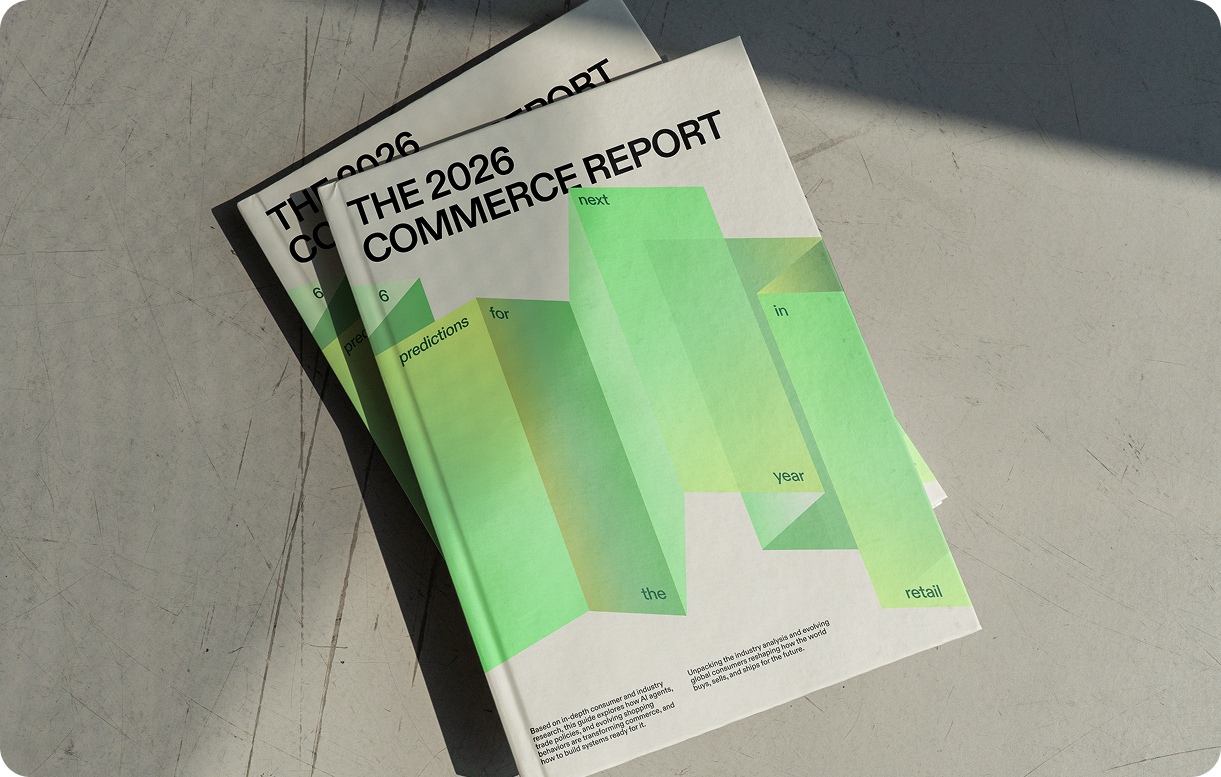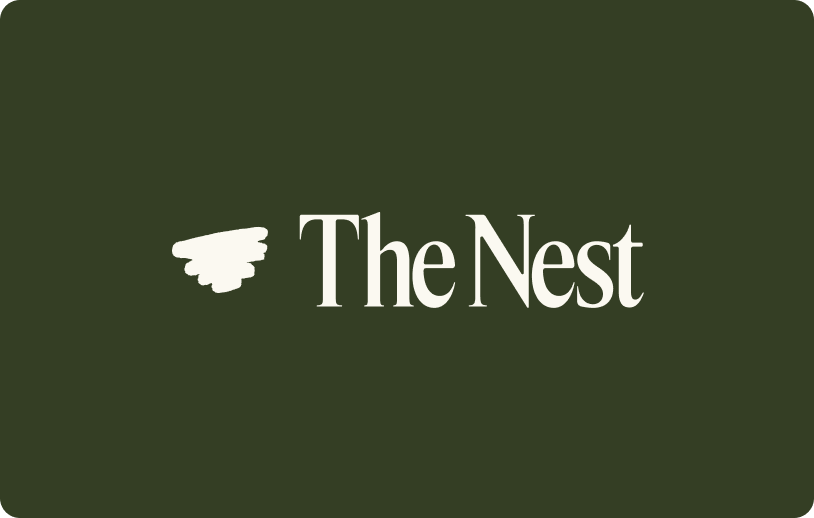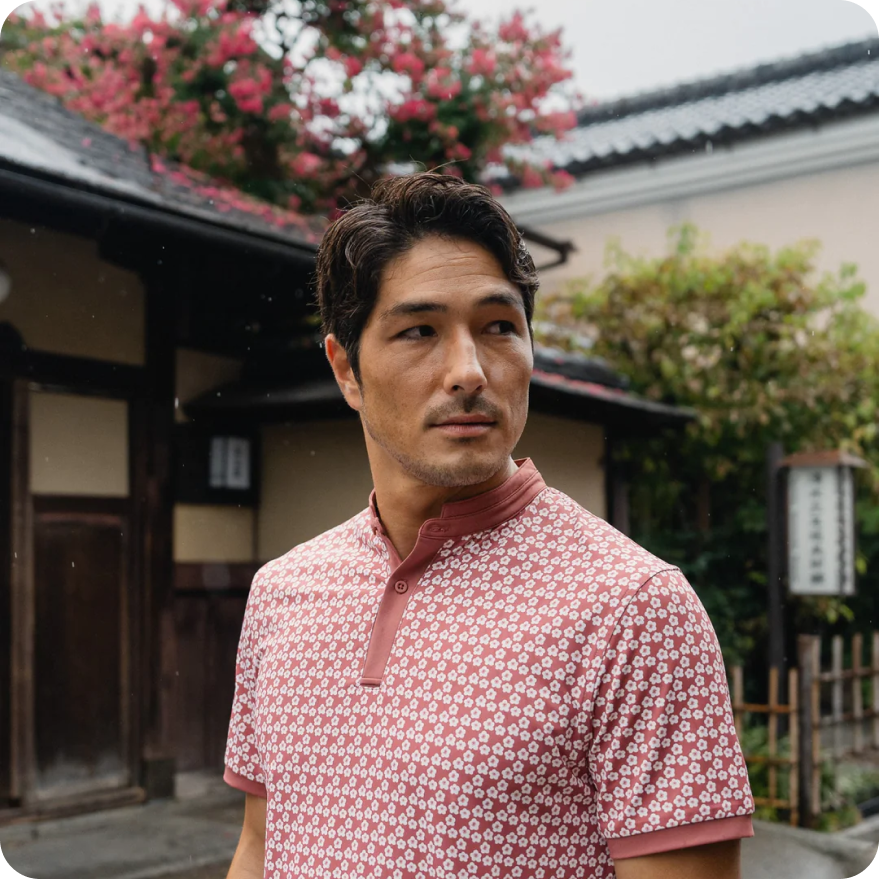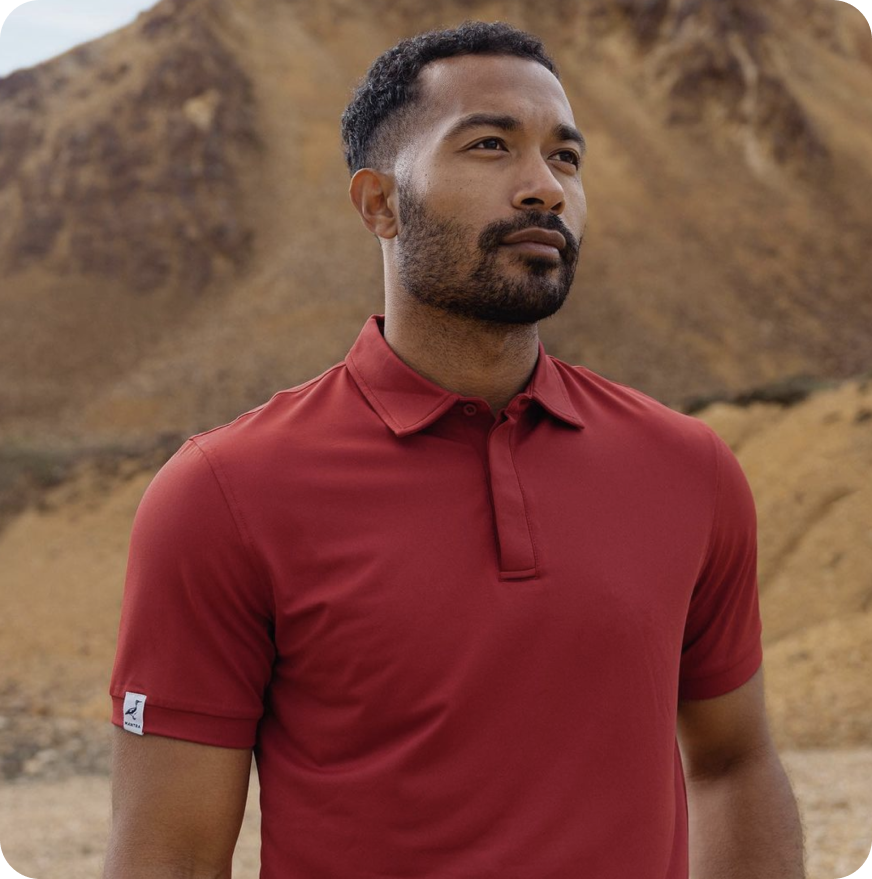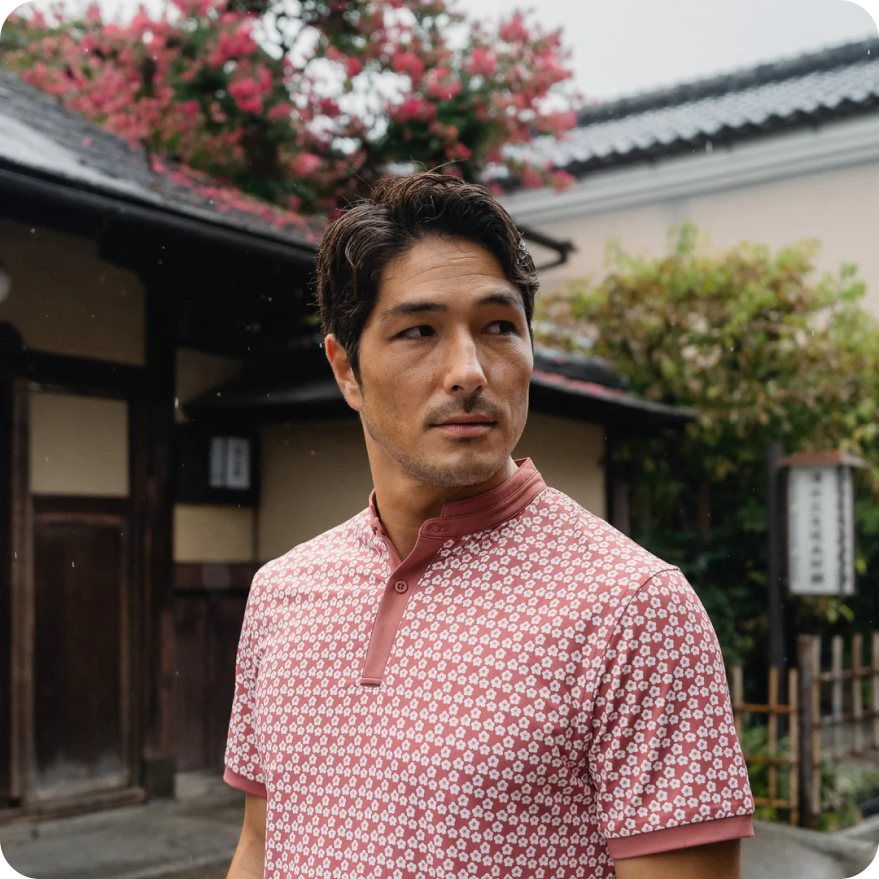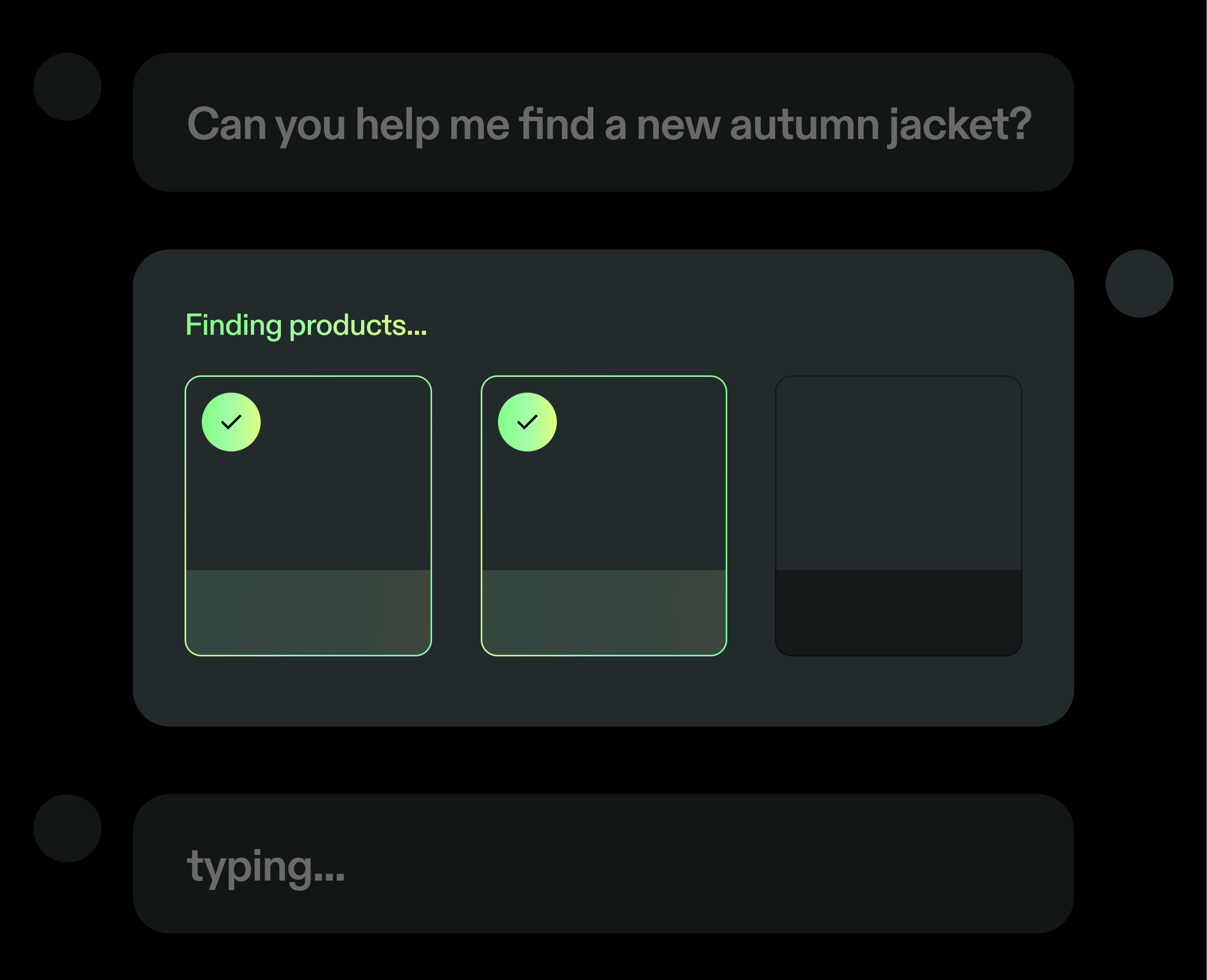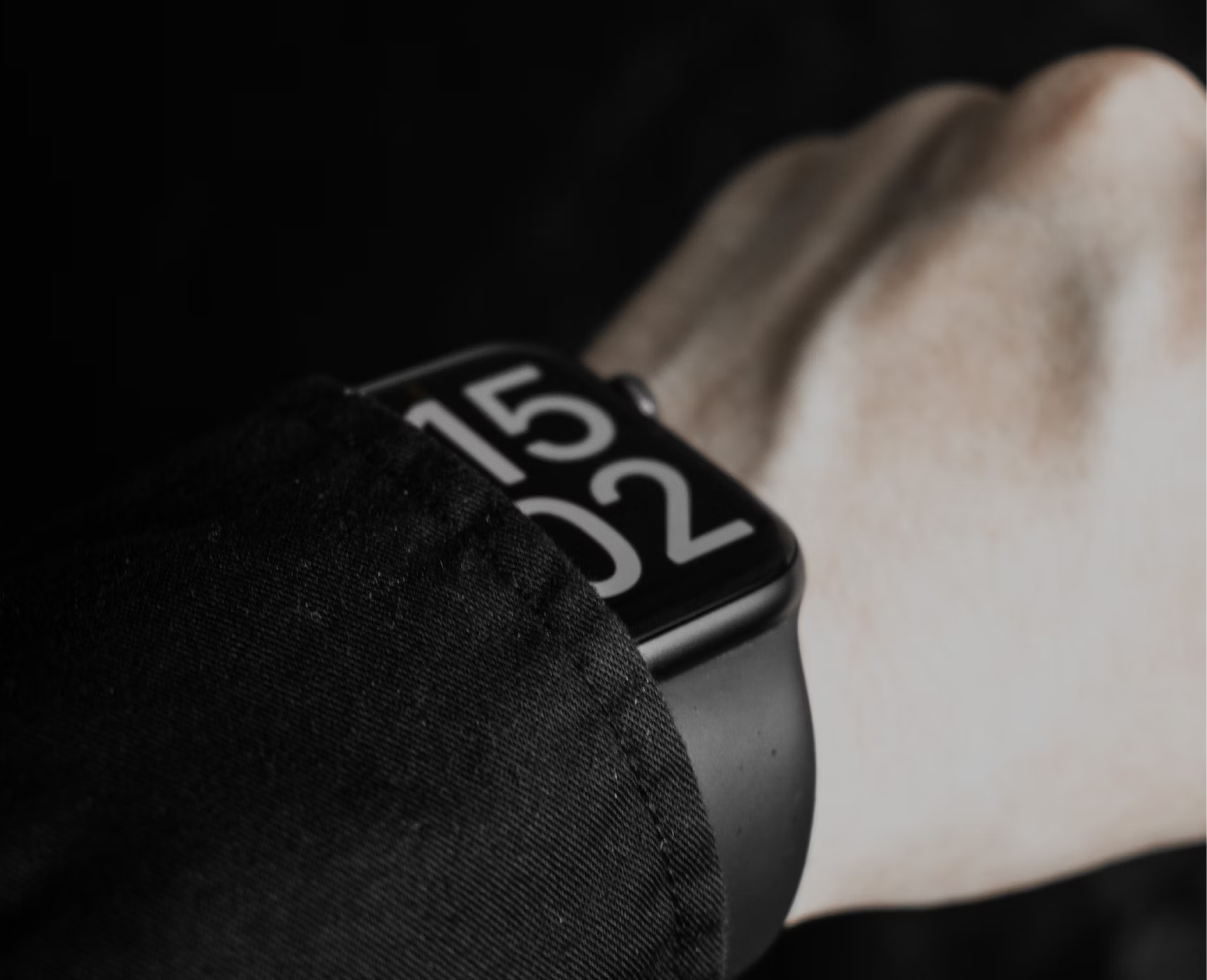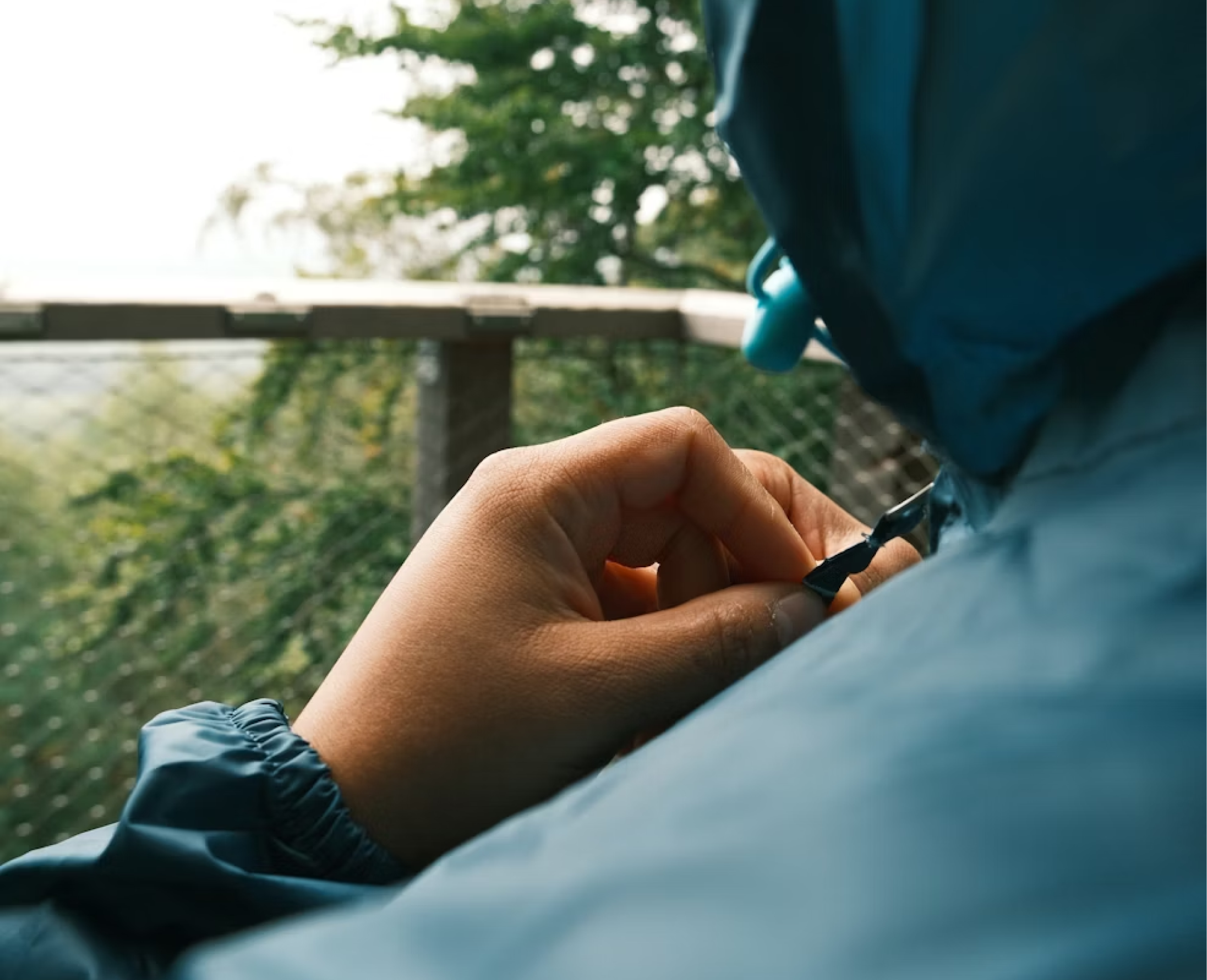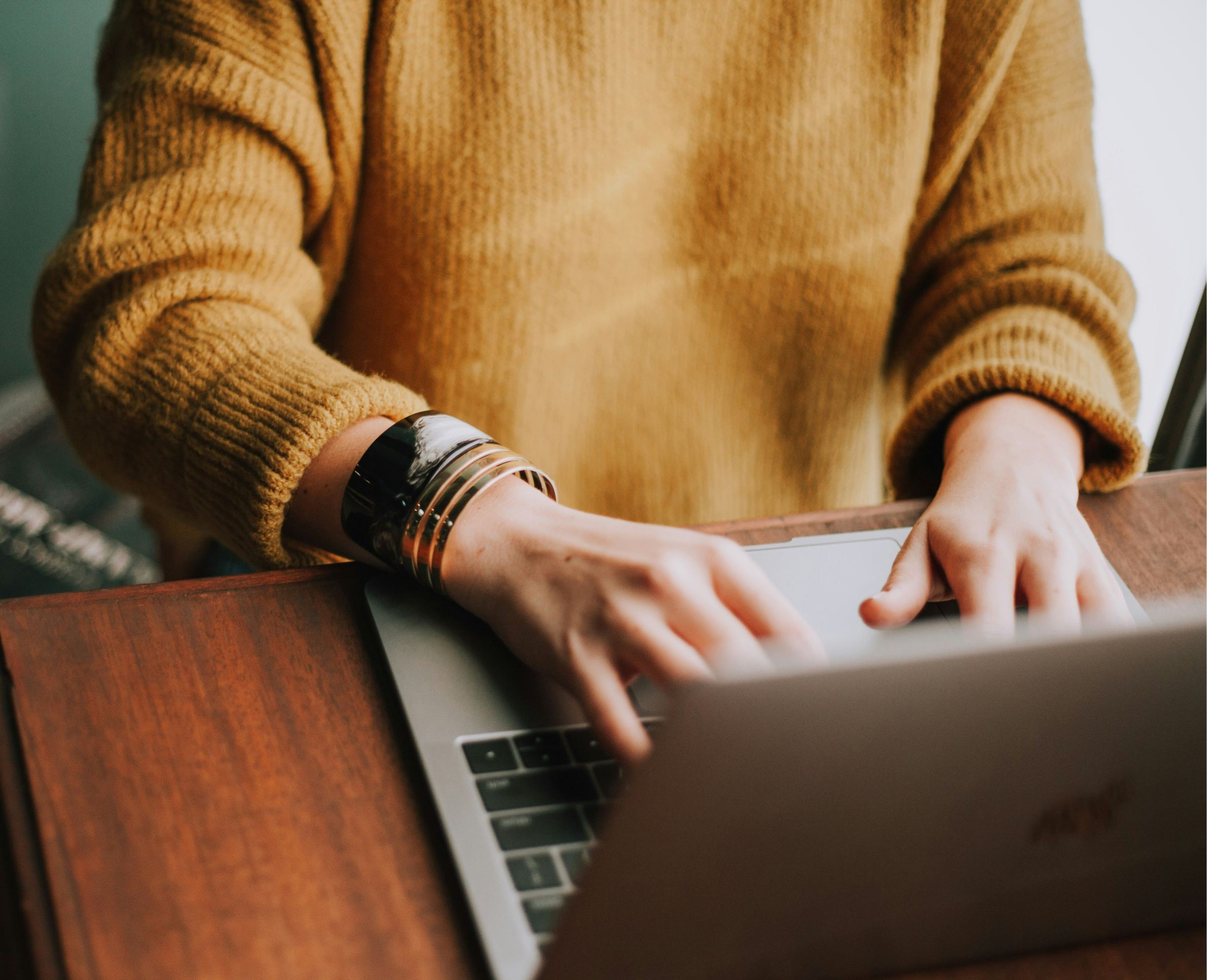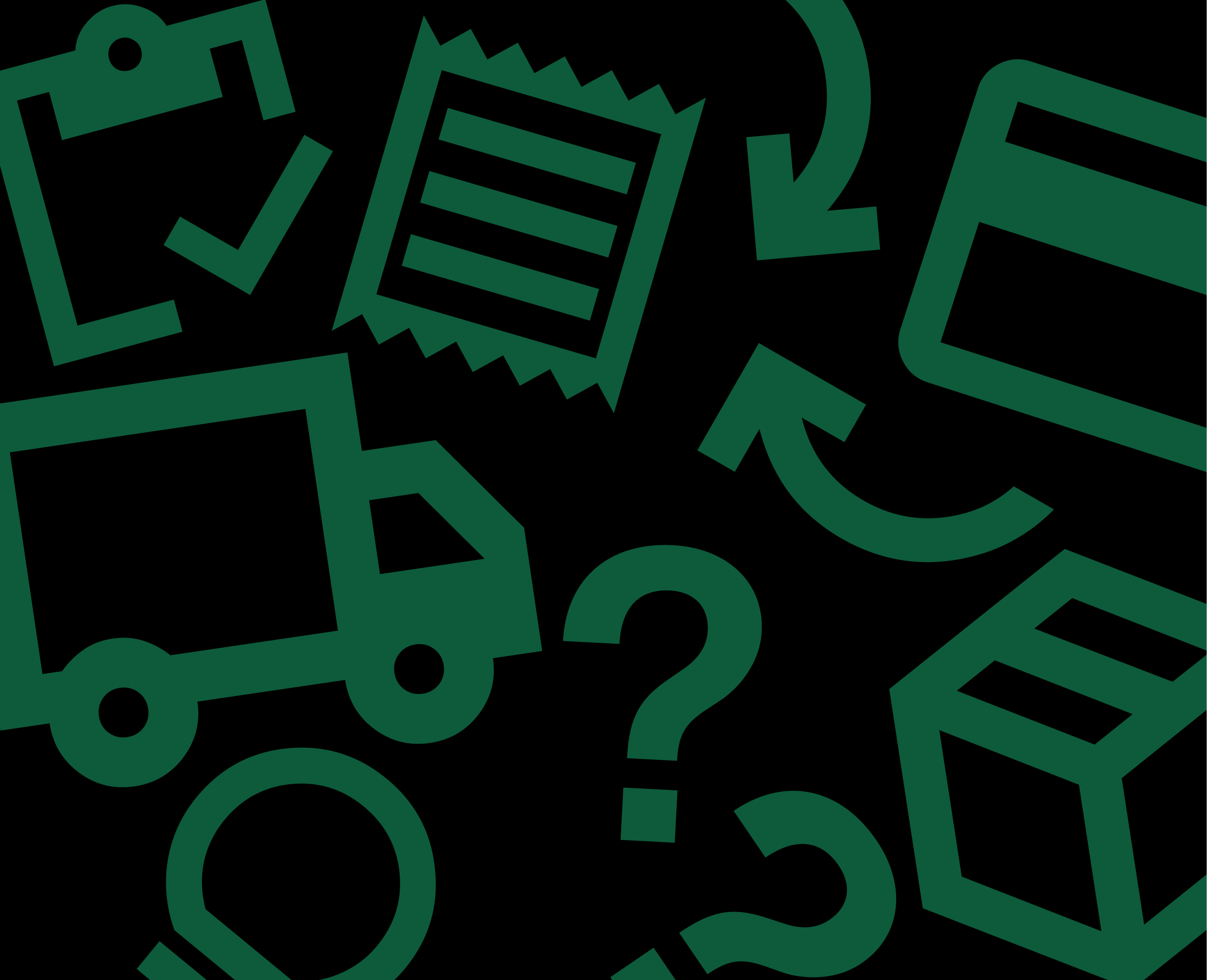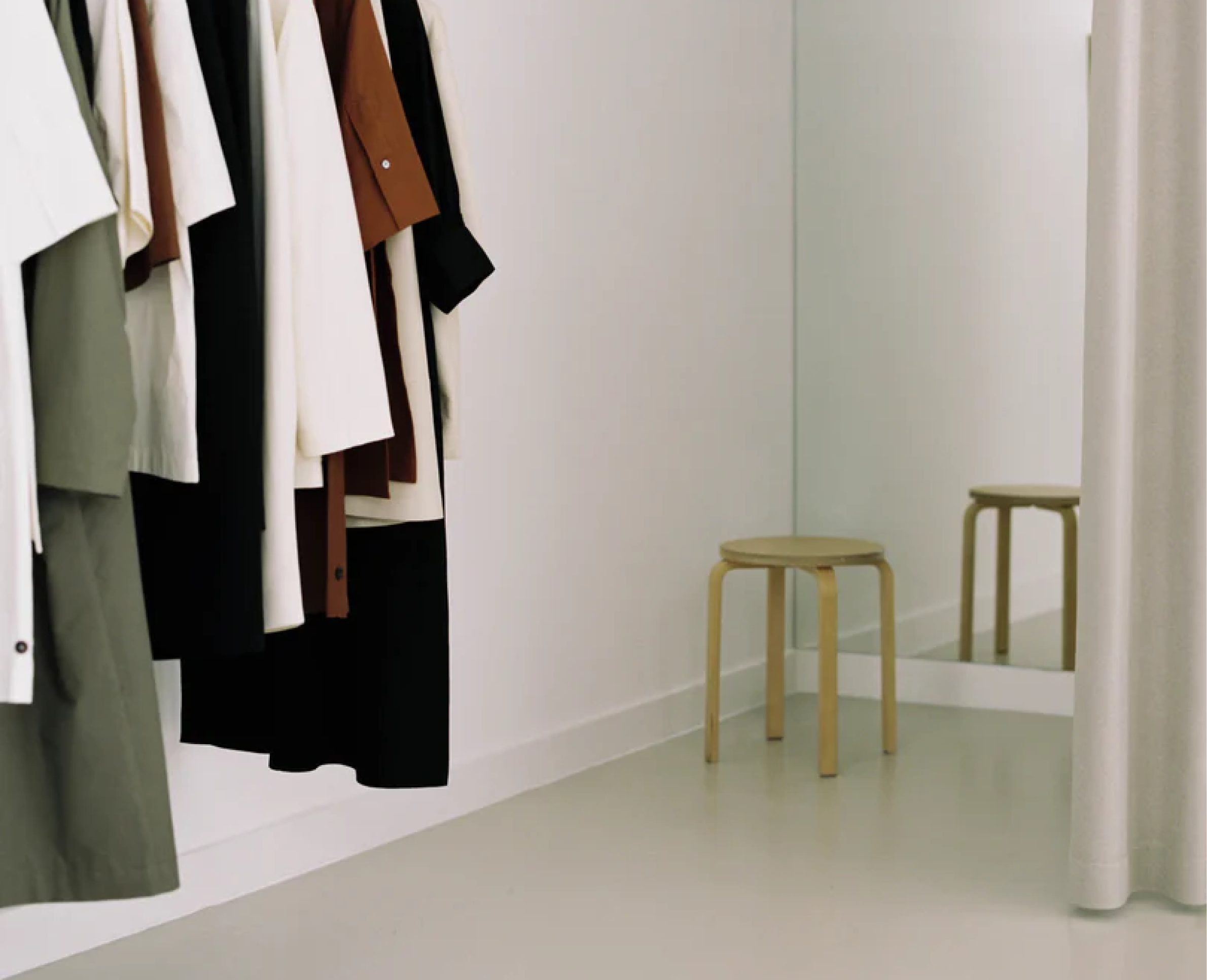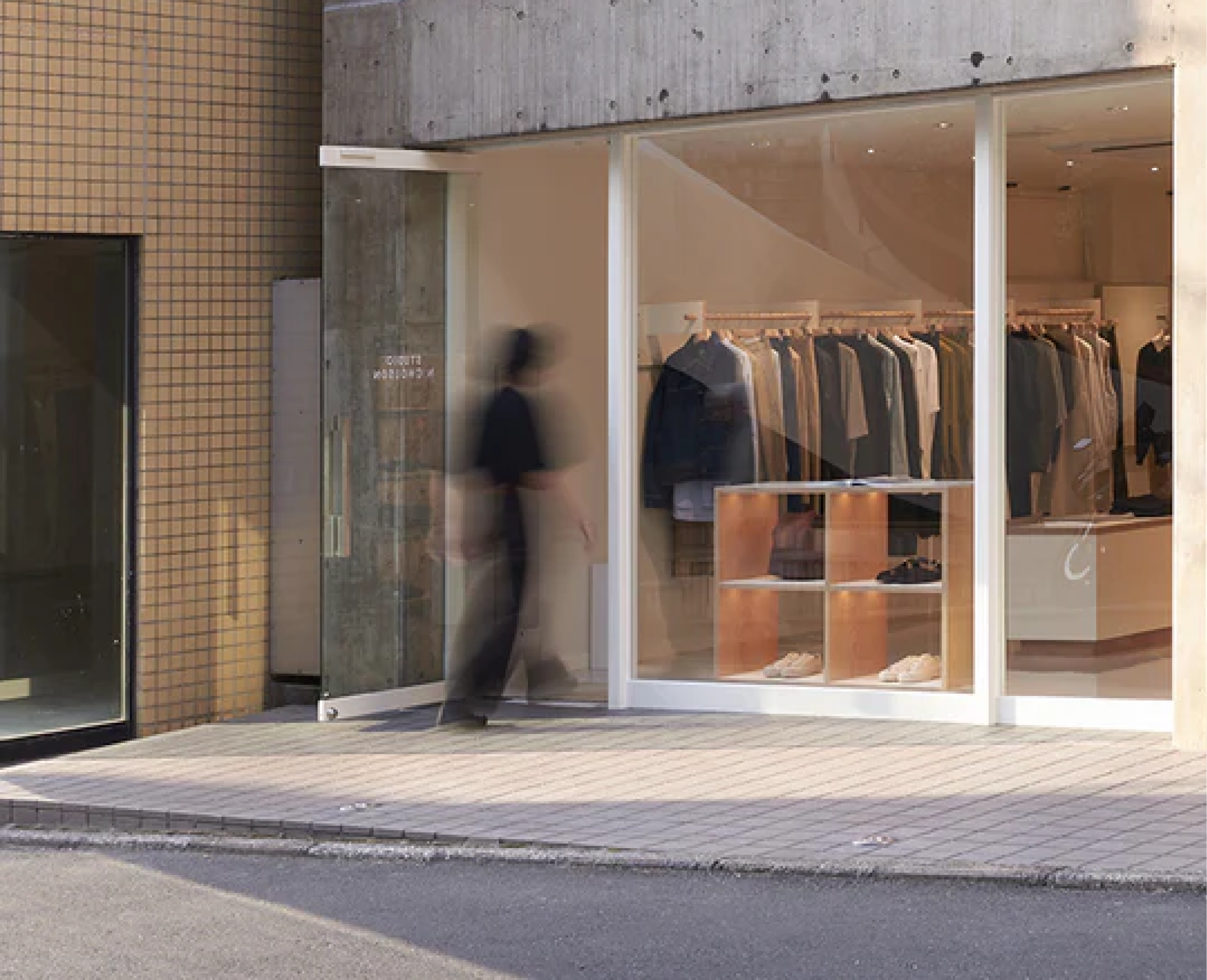A man on a mission: business for good.
Dominic Natalizio: I came from the business world, initially being a consultant, and I took a path towards what I call business for good. I was part of a group called Conscious Capitalism, which is a framework for building a good company for both people and the planet. I ended up going to Lyft after consulting, where I believed in the brand mission of Lyft being there to be a better transportation provider and support local communities. That is where the product idea for MANTRA formed.
I wore an athletic polo to the office and would usually turn around and wear that same polo on the weekend. I always wanted to dress up better for the office or drinks. But you know, I wanted to be comfortable first. That’s where the product idea started percolating. I went down to LA and started developing it. What excited me was to make a business that was on the leading edge of what is sustainable.
You talk a lot about sustainability. That’s been your driving force from day one in MANTRA’s origin story. Tell me more about that passion.
Dominic Natalizio: It’s in our lifetime where sustainability challenges are coming to a head for many reasons. The climate situation continues to progress negatively. It's become more visible. You see videos of plastic rivers flowing in Southeast Asia and South America. I want to be a part of finding solutions.
The other part coincides with me being a big adventurer. I travel and explore the natural world a lot. I’ve been lucky enough to see some amazing natural places, and as a result, I feel a deep responsibility to protect them. There’s a saying in the outdoors community to “leave it better than you found it.” It’s a mantra that resonates with me, and simply put, this is our mission at MANTRA.
Beyond making a better version of your apparel, we hope our gear and our brand inspire people to have a deeper connection with the planet and the call to protect it.
As we go into Black Friday Cyber Monday, how do you balance holiday hyper-consumption with your purpose and conscious capitalism goals?
Dominic Natalizio: It's a big question. As a brand, it’s important that we don’t push product but instead genuinely create a product that people will need, love, and cherish for a long time. Our flagship product is the polo, and we call it the most versatile polo on the planet. You can wear it on a Zoom call, you can wear it when you're golfing, or you can wear it out on the weekend. It starts there - integrating sustainable values into your brand identity.
When it comes to sales like BFCM, which ultimately push products by incentivizing people to buy, you have to lean on those brand values to guide your philosophy. At MANTRA, we try to avoid sales and product discounting. Instead, we try to set a reasonable price for investing in a polo that I’ll love, wear a lot, and is attainable. But, our anniversary and Black Friday Cyber Monday sales give people access to our products at a lower price, which is important regarding accessibility. It’s important that our clothes aren’t too premium and inaccessible. We try to find that balance.
I was listening to an Anna Wintour interview the other day, and she says she’s seeing consumers pivot to a world of more quality and fewer items that will last. Is that something you’re seeing as part of your fashion ecosystem?
Dominic Natalizio: It's a good question. There's a spectrum of buyers. Some people keep more active closets with fast fashion, and others are very purposeful about what they buy and how much they use it. The quality narrative is symbiotic with the sustainability narrative. Through our relationship with MANTRA customers, we slowly discuss why having fewer things and keeping a smaller closet is important. The most sustainable thing to buy is nothing at all. We try to drive that narrative. But certainly, buyers have different vantage points.
Our message is to take less in, buy less, and then be more thoughtful about using what you have and seeing it through toward an end-to-life solution, as you’re doing with recycling at Swap. That’s what is best for the planet.
So enough about consumers; as founders, you have to navigate A LOT during the Black Friday Cyber Monday season. I read that 72% of startup founders suffer from one or more mental health issues. 23% reported a feeling of loneliness. How do you manage mental health during this crazy season?
Dominic Natalizio: One of the biggest things that comes to mind in that founder's journey is that there is much to be done. You have an infinite to-do list. In an employee working scenario, you typically have a manager with role expectations based on something a human can achieve daily.
When you enter a founder scenario, you want to achieve the world and have to do it in many business areas. It becomes important not to focus on the entire to-do list but what's the highest priority to-do on a day-in, day-out basis. You must get comfortable taking on those most priority items and letting things slide.
From the mental health perspective, you have to accept I won’t be doing everything I want to get done. But it's okay. It’s not a failure to not be getting to things. Instead, you have to look at all the boxes you did check off. It’s a mindset that I'm still working on staying true to - because opportunities come up, and it’s hard not to want to push those boundaries. I thought I was there. Then, opportunities arise, and you want to do it all again, pushing those boundaries.
The biggest thing to be mentally healthy is to know when to say no.
The founder's journey can be lonely. How have you been able to navigate that?
Dominic Natalizio: It’s certainly challenging. While I've been the primary full-time employee in the early days of MANTRA, I could have never done it without the part-time support and contributions of my partner and co-founder Ashley. One of the biggest things that comes to mind when thinking of the challenges of a solo-preneur is decision-making, on top of having things to do and produce. You have to be in the weeds. But you also have to be CEO, which is difficult.
Having someone to talk things over with is critical, particularly the big decisions. If you’re a solopreneur, make sure you have that person. Mentors and investors can be those people if you have them in your network, but they can also simply be a friend or a partner, someone that you can just talk things over with. They don't have to know all the details, but they can bring you along in your decision-making.
Ensure you have people to discuss things with – I’ve found it super important.
What are some ways that founders can protect their mental health beyond business?
Dominic Natalizio: The biggest thing is what I like to call airplane mode. When you're on an airplane, you're forced to be offline. And sometimes, as founders, that’s just what we need.
Once it gets to Black Friday, I'm in airplane mode. I do what I can to prep; after, I leave it and learn from the results. You can schedule a tiny bit of time in the morning on Saturday or something, so you can make sure your cyber Monday is then going to go well based on how Black Friday went, but having those periods of time where you're entirely off, that'll give you that fresh perspective to operate the business well. Otherwise, you're sucked into it, and that holiday weekend slips by without you getting the time to recharge, which can be mentally unhealthy.
The other things that I would mention that have been important to me are prioritizing physical exercise and sleep – things that help refresh you mentally and physically. Similar to holidays, you have to make sure you clock out and prioritize yourself. It pays dividends in being more productive when you get back to it.






